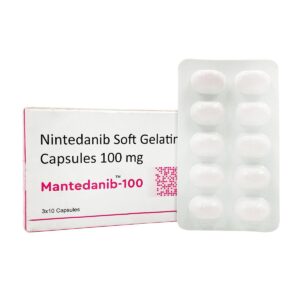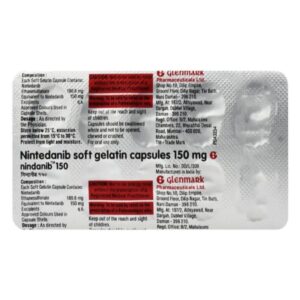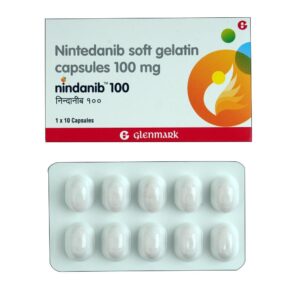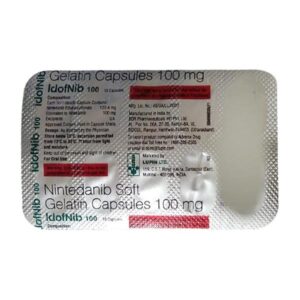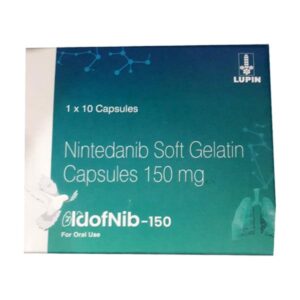NINTEDANIB
NINTEDANIB: Nintedanib is a medication that is primarily used for the treatment of two types of conditions: idiopathic pulmonary fibrosis (IPF) and systemic sclerosis-associated interstitial lung disease (SSc-ILD). It belongs to a class of drugs called tyrosine kinase inhibitors.
Mechanism of action: Nintedanib works by inhibiting multiple signaling pathways involved in the development and progression of fibrotic and vascular remodeling processes. It targets various receptors such as platelet-derived growth factor receptor (PDGFR), fibroblast growth factor receptor (FGFR), and vascular endothelial growth factor receptor (VEGFR), among others.
Dose: The recommended dose of nintedanib for patients with IPF is 150 mg taken orally twice daily with food. For patients with SSc-ILD, the recommended dose is also 150 mg taken orally twice daily with food. The capsules should be swallowed whole and not crushed or chewed.
Side effects: The most common side effects of nintedanib include diarrhea, nausea, vomiting, abdominal pain, decreased appetite, weight loss, hypertension (high blood pressure), and liver enzyme elevations. Some patients may also experience bleeding, such as nosebleeds or bruising, as well as increased sensitivity to sunlight. It is important to seek medical attention if any severe side effects occur, such as severe bleeding, severe liver problems, or signs of an allergic reaction.
It is important to note that nintedanib may interact with other medications, so it’s essential to inform your healthcare provider about any other drugs you are taking. Additionally, patients with certain medical conditions such as liver problems or bleeding disorders should discuss the potential risks and benefits of nintedanib with their doctor before starting the treatment.

